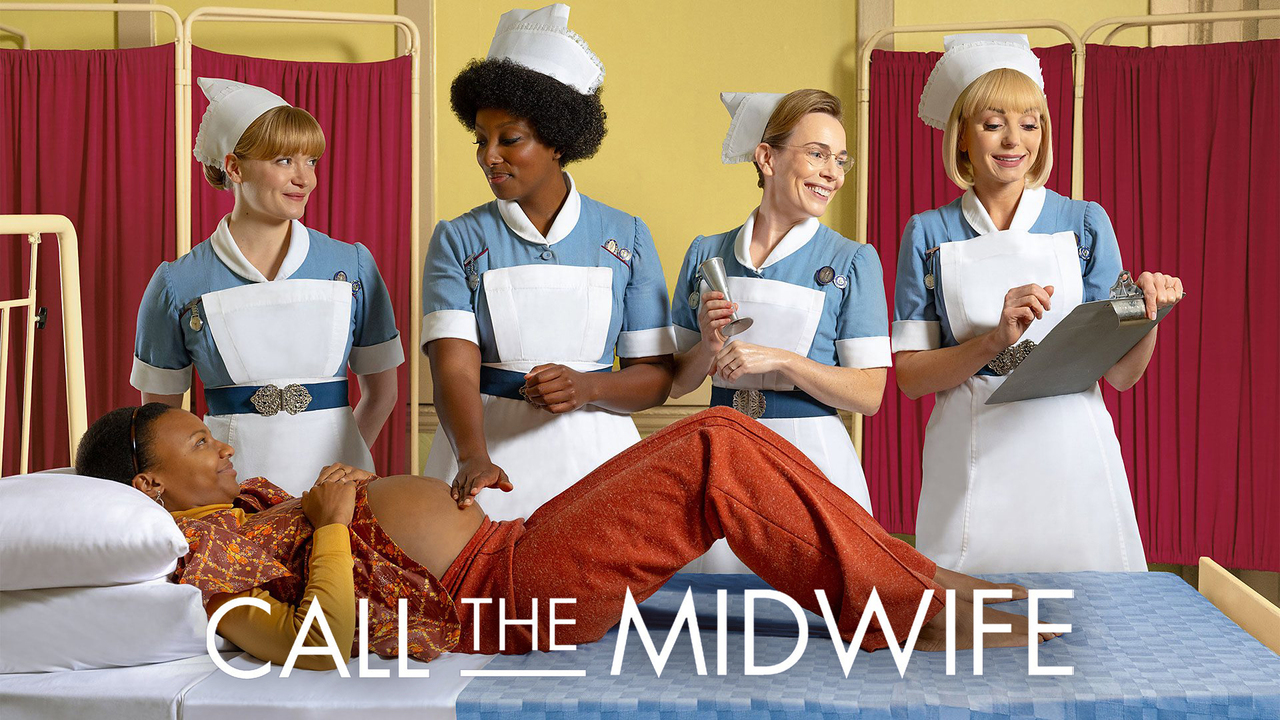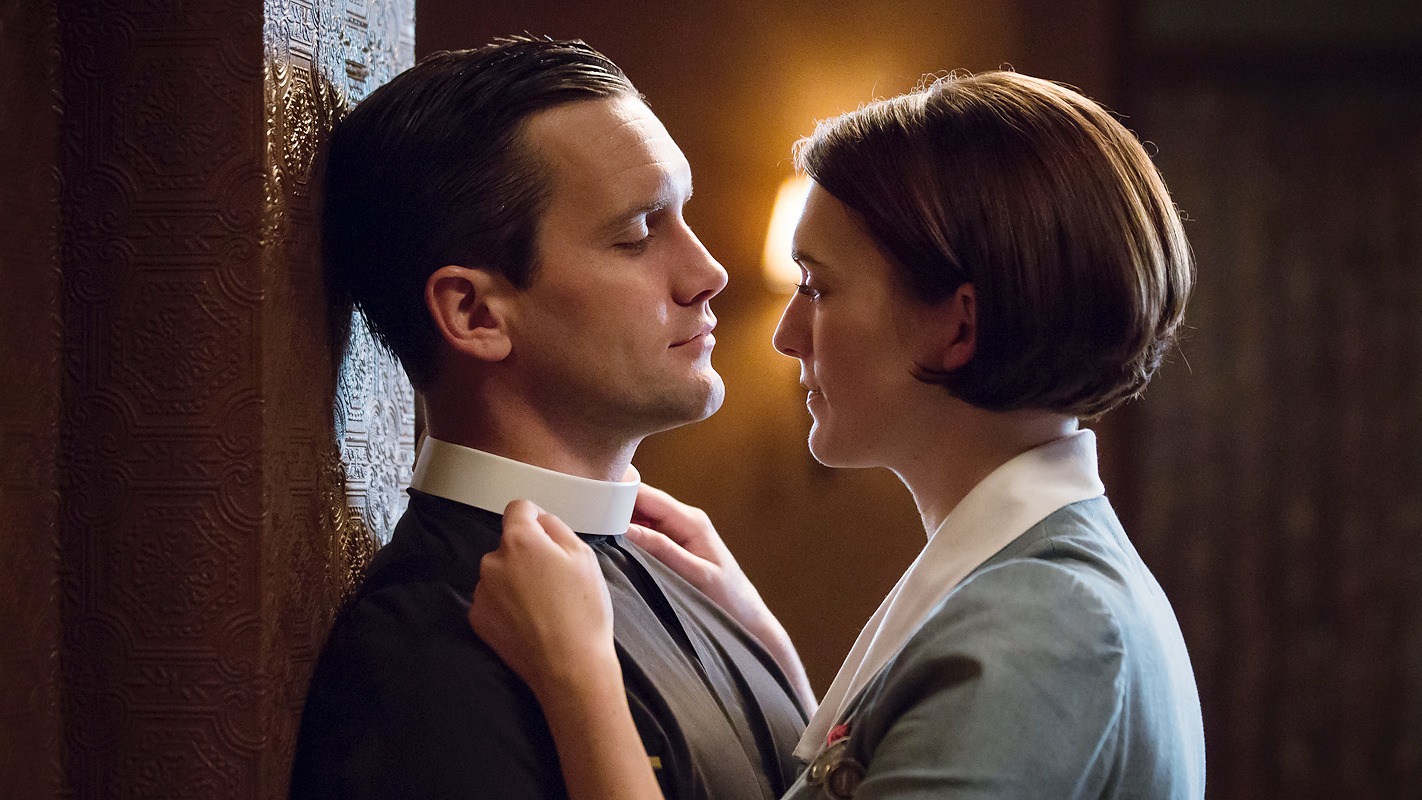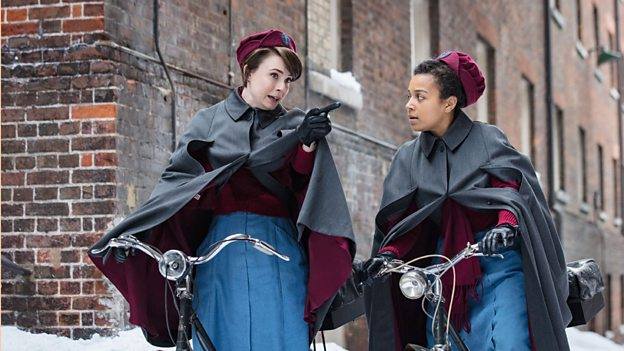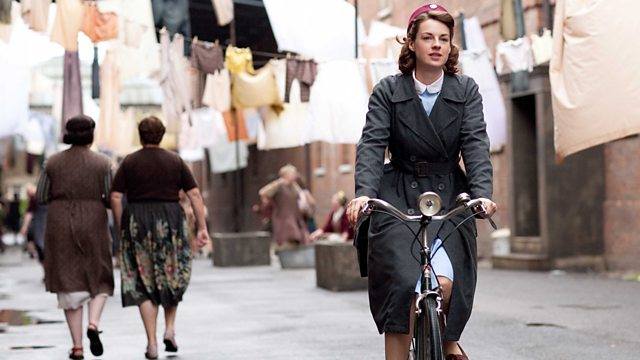Call the Midwife (2012)

Call the Midwife is a beloved British television series that first premiered in 2012. Set in the East End of London, the show takes viewers on an emotional journey through the lives of a group of midwives working in the late 1950s, 1960s, and 1970s. Based on the memoirs of Jennifer Worth, the series is both historical and heartwarming, providing a glimpse into the challenges and triumphs of women in a post-war society. The show not only focuses on the work of the midwives but also delves into the lives of the community they serve, showcasing personal stories that resonate with audiences worldwide.
At the center of the series is Nurse Jenny Lee, played by Jessica Raine, who joins Nonnatus House, a convent that serves as a base for the midwives. Jenny is a young, idealistic nurse eager to help the women of the East End but quickly learns that the world of midwifery is far from simple. The show skillfully portrays Jenny’s growth as she experiences the joys and hardships of delivering babies, navigating difficult social circumstances, and forming deep connections with the women she serves. The relationships between the midwives are key to the show’s emotional core, and their camaraderie provides comfort in the face of adversity.
The series highlights not only the medical aspect of midwifery but also the social issues of the time. The East End of London in the 1950s and 1960s was a place of poverty, hardship, and complex social dynamics. Through the eyes of the midwives, Call the Midwife examines issues such as class, race, gender, and the changing role of women in society. The show often addresses sensitive topics, including the impact of abortion, poverty, mental health, and the challenges faced by immigrants, all while maintaining a compassionate and respectful tone.

One of the most notable aspects of Call the Midwife is its strong focus on women’s relationships and their ability to support each other. The bond between the midwives, led by the wise and nurturing Sister Julienne, played by Jenny Agutter, is portrayed with warmth and sincerity. Each midwife has her own distinct personality, from the more experienced and pragmatic to the younger, idealistic ones, creating a dynamic and diverse team. This sisterhood is crucial in their work, as they face not only difficult medical cases but also personal struggles.

The show also paints a vivid picture of the changing times in post-war Britain. As the 1960s and 1970s unfold, we see how society evolves, with the rise of feminism, the introduction of the contraceptive pill, and shifting attitudes toward childbirth. The midwives themselves experience these changes, grappling with their own beliefs and the way they practice medicine. Call the Midwife doesn’t shy away from the political and cultural upheavals of the time, yet it presents these issues through the lens of personal stories that resonate deeply with viewers.

Ultimately, Call the Midwife is more than just a medical drama; it is a heartfelt exploration of the human condition. The series beautifully intertwines personal stories with historical events, creating a rich tapestry of life in a rapidly changing world. With its emotional depth, strong character development, and powerful performances, Call the Midwife has become a beloved show that continues to captivate audiences, making it a true testament to the power of storytelling.










